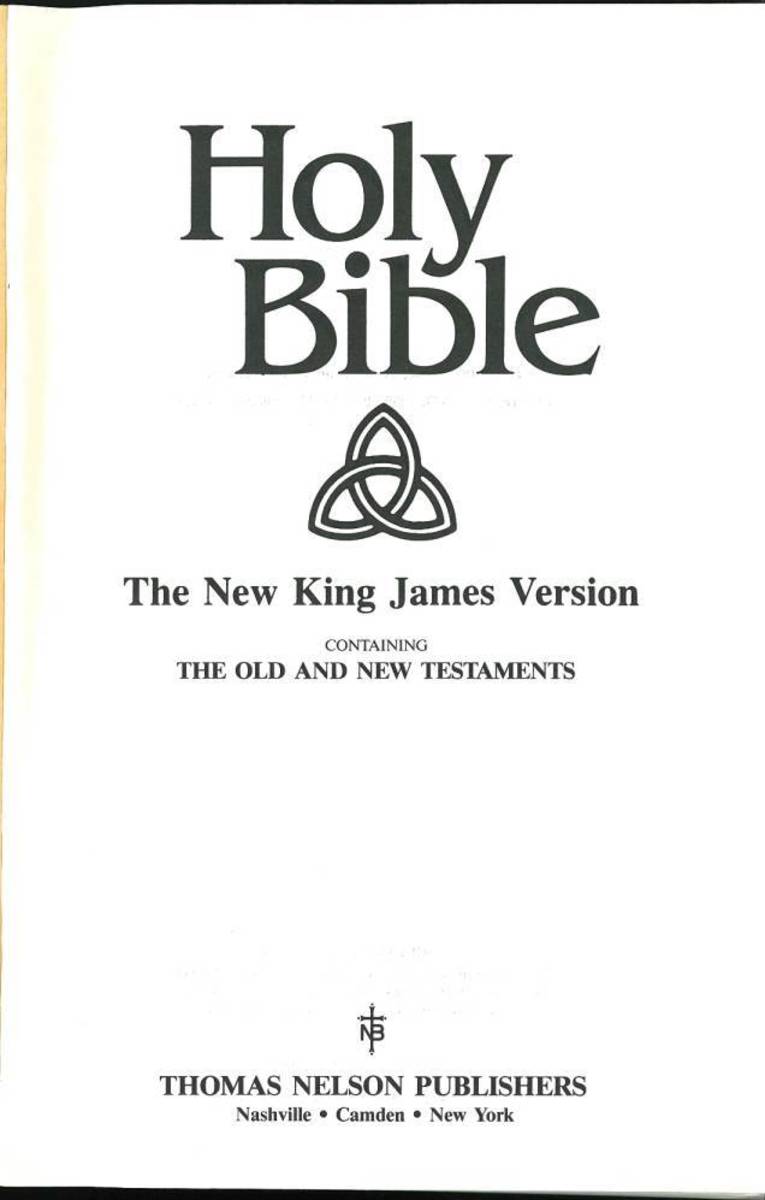The Next Great Challenge for Christianity

Tolerance! It is a good place to start. We need more of it, but in some ways the word sounds like an insult. "I tolerate you," brings to mind a condescending and arrogant attitude. We need more than mere tolerance.
Radicalism is the last thing we need. A militant approach to proselytizing or enforcing one's social values is counterproductive at best. The Nazarene teacher advised us to turn away from those who reject the message, not to beat them over the head with it. Okay, so you knew that already. But how do we help remove such radicalism from the Christian landscape?
A recent article described how atheist student groups are flowering on college campuses. They are presenting a kinder, gentler atheism which is pleasing to the intellect. Let us be clear, intellect is not the enemy, but of course you knew that already. Those Christians who view intellect, intellectuals, science and skepticism as the enemy likely would not read this article, anyway. But how can we compete with something so fashionable as repackaged atheism? Or should we ignore it?
Can You Tolerate Biblical Interpretation that is Both Compatible with Science and Superior To It?

Richard Dawkins, author of The God Deception , makes a good point about religious intolerance, though he makes the point with the venom of intolerance. Go figure! And I thought he was supposed to be an intelligent man. The problem is not religion, of course; it is people within religions who do not restrain their frustrations. What we need to do is make all aware of those potential frustrations and not allow the seeds of discontent a place to take root. Frustration is a product of vulnerability, and that vulnerability is a product of ego—the earthly master we are trying to shake off.
Carl Sagan, author of The Pale Blue Dot , also makes a good point when he condemns religion for being too close-minded with regard to the accomplishments of science. The late Mr. Sagan seems to forget, however, that many scientists are devoutly religious. But his statement opens to us an opportunity. And yet, what can we do about this opportunity? Instead of religion shunning the secular sciences, it should embrace them. I'm not talking about Jesuits in their laboratories or observatories. I'm talking about making the skepticism of science a regular part of everyday church life. Radical idea! But wait till you read the intent behind the idea.
Skepticism in Church
Now, hold onto your halo and try to understand what I'm about to say. I'm talking about applying a bit of skepticism to our worship, but in a very unusual way. There are certain constants that we can hold as perfect and never in need of change. You know which ones I'm talking about—God's love, Jesus' mission to bring us salvation, the verity of biblical miracles, and the like. Things like these are beyond interpretation.
So, skepticism about what? Quite simply, we need to question our interpretations and those of our pastors and priests. Interpretation is a major pitfall. What is at stake if we get it wrong? Let me give you an example.
One Christian with whom I talked was so enthusiastic to be saved because now he could commit any crime and still go to heaven. Does that sound right? Wisdom would seem to disagree with that one Christian's interpretation, but his pastor had assured him that his interpretation was correct. Yet, Jesus admonished the sinner to go and sin no more. Why would this be important? And why did that pastor not think of this? If one clings to evil ways, is one really "accepting Christ?" Is one really saved? I think not! Let me explain.
The skepticism of which I speak, then, is not a skepticism of the Word. It is only a skepticism of the interpretations we place on the Word. There is a big difference. Such skepticism of our own views is an act of humility, because we are not placing our meager interpretation above God or even equal to His word. By doing this, we show our great love of the Word. By this, we attempt to come closer to its true meaning through our own personal divine revelation. "Ask and you will receive" (John 16:24, excerpt). Humility is the mode of that asking. Thinking that you already know all the answers only blocks your ability to ask. The solution is to remain constantly hungry for answers.

Responsibility for Salvation
We are each responsible for our own salvation. Jesus made it easy for us, but we can chose to accept it or turn away from it. Yet the one Christian of whom I spoke earlier only thinks he has accepted salvation. Has he really? Smiling and saying that one has accepted Christ, then turning one's back on God's law are a contradiction. While it is true that one no longer has to obey the law to become righteous (a keen trick of ego which the Pharisees learned too well), saying that one accepts Christ in order to commit all manner of crime is a form of deceit. If one truly accepts the New Covenant, and loves God with all their heart, the laws will naturally follow.
If we make mistakes along the way, we know that God still loves us. When a baby learns to walk, the parents do not give up when the infant falls down.
I think some pastors misunderstand the New Covenant of Christ's sacrifice. What does "accepting Christ" really mean? If one embraces selfishness, deceit, criminality and indulgence, are not we really "accepting" the master of this world, instead of Christ? It has been said that we can serve only one master. The New Covenant forgives all sins, but this does not include permanently turning our backs on God, even though we profess our love for Him. Such is the most profound form of treachery—wallowing in a "reassuring lie" of self-deception.
Later, if we discover our mistake, we are automatically forgiven. God's love is unconditional. Yet, how will we ever discover that a mistake has been made if we do not remain vigilant—in other words, constantly humble and hungry for answers—constantly skeptical of our own meager interpretations?
Interpreting a Small Universe
Interpretation remains valuable. It serves a purpose, but we should not stay attached to interpretation.
Carl Sagan said of the religious that they cling to a small God and live in a small universe. He was over-generalizing, of course. I have been an amateur astronomer my entire adult life. I am a computer scientist having graduated summa cum laude. I see the same universe that Mr. Sagan saw, with countless billions of galaxies, each containing billions or even trillions of suns. And this is no warm and cozy universe. There is unimaginable distance between each star. Just try it out. Imagine. How far would you have to step back from our own blazing sun to view it as a dim star? You know that a light bulb viewed at arm's length can seem very bright, but viewing that same light bulb when it is on the distant horizon, it can seem like a dim star or even too dim to see at all.
I can picture and understand Mr. Sagan's universe and still love God. There is no contradiction.
Some Christians interpret the Bible literally, or so they say. From this, they find that humanity, the Earth and the cosmos are only about 6,000 years old. They find that Noah's Flood occurred 2348 BC.
They think these things because of their interpretations. And yet, so many different interpretations of nature disagree with their one interpretation of the Bible. Who is right?
The great tragedy is that many of these Christian Fundamentalists equate their interpretation with the true meaning of the Bible. Could this contain a measure of arrogance? Is personal interpretation equal to God's Word? If such interpretation is correct in every way, then there might be no arrogance at all. Only the individual and God know their true motivation.
Scientists are the experts on reality. Just look at the technology driving our civilization. If science proved to be only 90% right, then much of our technology would not work. But the nature of empiricism demands we get it right. Either an idea of science works or it does not. Newton's laws of motion work very well until one moves an object at near-light speeds, then Einstein's Relativity takes over. Prior to the nineteenth century, there was no need to worry about near-light velocities. Newton's laws were all we needed.
So many different branches of science point to an ancient humanity, a more ancient Earth and a far more ancient cosmos. They cannot all be wrong. Too many empirical findings back up the conclusions of science on these matters.
If someone ignores reality and believes strongly something contradicted by reality, we typically say that they are "delusional." Delusion is a strong word and it applies strongly to some biblical interpretation. Yet, when the delusion is pointed out, many Fundamentalists feel that the Word of God is being attacked. This could not be further from the truth. The Word of God remains safe; their interpretations are the ideas in jeopardy.
Take Archbishop Ussher's date for Noah's Flood, 2348 BC. The biblical story tells us that after the Flood, Noah and his family were the only ones on Earth. Yet, three years after this date, Egypt's sixth dynasty started! Three years provides insufficient time to grow a dynasty of Egyptian citizens. Thirteen years after Ussher's Flood date, Sargon the Great conquered Sumer, soon establishing an empire which stretched from the territory of modern Iran to the Mediterranean. From whence did all of those imperial citizens come? Clearly, the "literal" date for Noah's Flood is wrong. If the literal event ever happened at all, it needs to have happened far earlier, when history does not contradict it. To cling to the Ussher timeline, as some Christians do, is to cling to delusion.
Such delusional activity only gives the skeptics and atheists more fuel for their arguments. Why give this to them? Why give the competition such ammunition when there are other, more divine answers awaiting us which are not based on delusion?

Fear of Letting Go
Some Christians are afraid to let go their "safe" interpretations. They are afraid, but also lazy. Some Christians feel that if we cannot take the Bible literally, then everything is subject to re-interpretation. How can we make sense of anything? How, indeed! That is where humility and a burning hunger come in handy.
Genesis 3 speaks of Adam and Eve falling from grace. God had promised them that they would surely die on the day they ate the Forbidden Fruit. Yet, did they literally, physically die? Genesis 3 ends with Adam and his mate being escorted out of the Garden. That does not sound like "death" to me. And Genesis 5 describes Adam living to the ripe old age of 930 years. Did he spend 930 years in the Garden, and then die the day he left the Garden? Probably not. Genesis 5 also says that at age 130, Adam had a son, Seth (born after Cain and Abel). Were these children born in the Garden? Genesis 3 says nothing of children being born there.
God did not lie. And yet, how did Adam die in the same day, if he lived so long afterwards? The answer is simple, but not literal. Adam and his mate died spiritually. Their death in the Garden was a spiritual death.
If we cannot take this lesson literally, then are there other lessons we need to interpret in a non-literal fashion? How thoroughly uncomfortable to the biblical literalists! They might actually have to do some work.
The trick is discovering the big difference between delusion and faith. And there is a big difference, there. Walk on water! If you have the faith to do it, only your feet will get wet. If you sink, then you are still clinging to the master of this world. Faith can be as empirical as the discoveries of science. But do not misunderstand. Seeking "proof" is the wrong approach. Faith precedes proof, not the other way around.
Everlasting Life and the Power of Miracles
Jesus told Nicodemus that we need to be born again. He told us all that we are promised "everlasting life."
What is the nature of "everlasting life?" Opinions differ. Interpretations of biblical passages are as varied as personalities. We have to ask: Of what value is understanding wisdom? What is the value of getting it right? Again, this is where humility comes in handy.
Some view "everlasting life" as the resurrection of their physical bodies and perpetual life for their Homo sapiens vessels. Is this right?
If consuming the Forbidden Fruit in the Garden led to spiritual death, could "being born again" refer to spiritual rebirth? Could "everlasting life" refer to continuity of consciousness after bodily death? Could it refer to life "in the spirit?"
Jesus frequently cautions his followers not to be so attached to the things of this world. The rich man has scant chance to enter Heaven. One needs to give up one's life in order to gain everlasting life. And he says, "For in the resurrection they neither marry, nor are given in marriage, but are as the angels of God in heaven" (Matthew 22:30).
How would you interpret the statement of Jesus that we can do the miracles he did and even greater ones? One pastor felt that this could not be taken literally. He felt that individuals could not heal the sick, yet Jesus sent his followers to neighboring towns to do just that. Walk on water? Peter did that, if only a moment, before doubt set in.
Why are Christians so afraid to perform miracles? Do some condemn the performing of miracles because they fear they do not have the faith to do them? Attempting miracles would reveal their lack of faith. How thoroughly uncomfortable.
I have performed a few meager miracles, and yet some Christians think this is an abomination—a thing of the devil. And yet, when I did these things, I felt at my most humble and faithful. The fact that I have done these things only means that we all can do these things. Doing them through Christ only means that we achieve the state of grace and faith with complete humility, forsaking ego (the false "self" of this mortal world).
The great challenge for Christianity may contain many things, but arguably the most important is that of gaining utter humility and the hunger of a beggar for the truth being offered us. We need to remain skeptical of our own mortal interpretations until it is obvious that we are walking on water by the grace of God. Then we will know that our journey is complete.
© 2010 Rod Martin Jr









